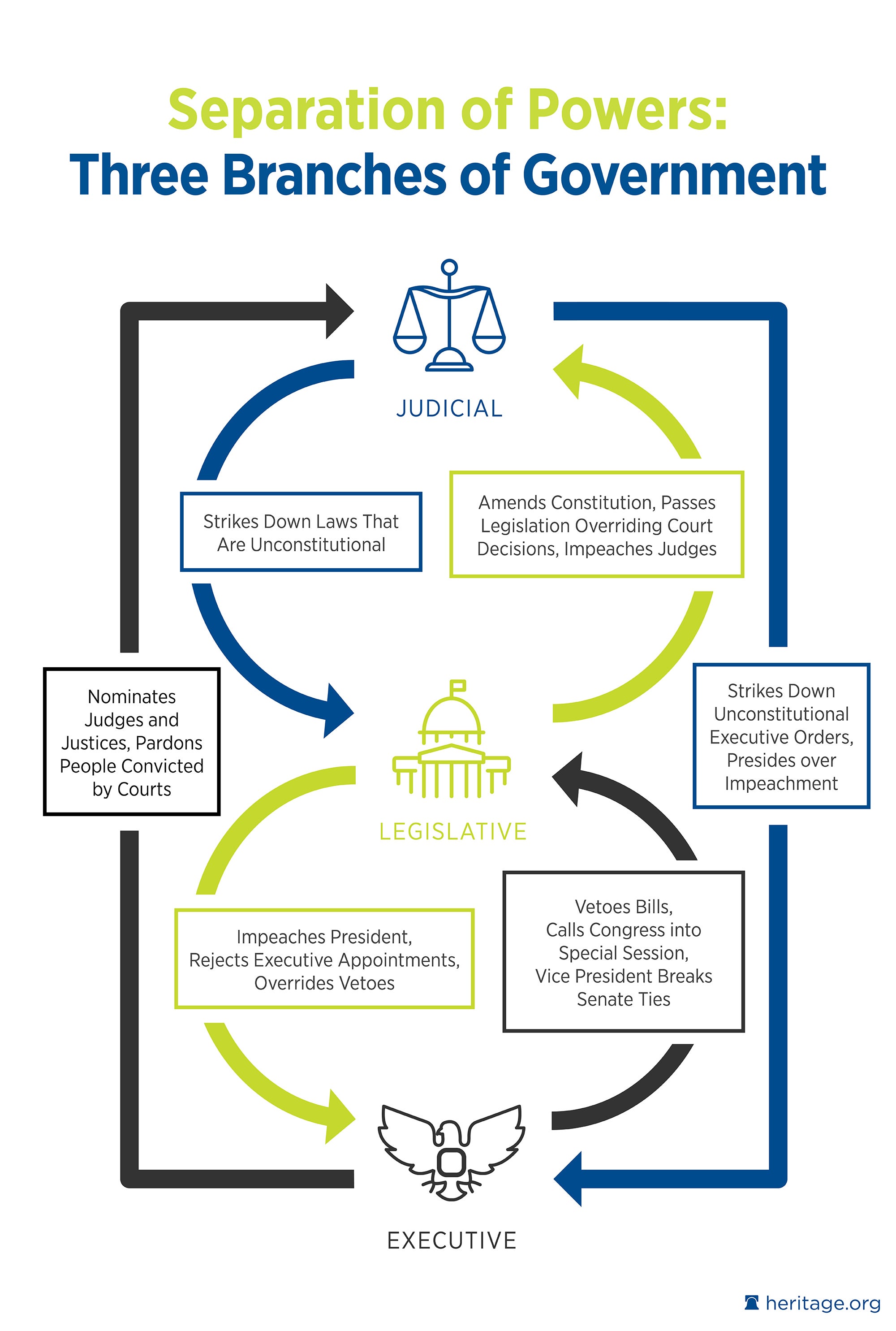
JUDICIAL BRANCH
Responsibilities: Interprets the law. Resolves legal disputes between private parties, between private parties and the government, and between different branches of government.
Checks the Legislature: Strikes down laws that are unconstitutional.
Checks the Executive: Chief Justice presides over Senate impeachment trial of the President. Strikes down unconstitutional executive orders or unconstitutional enforcement actions.

LEGISLATIVE BRANCH
Responsibilities: Creates federal laws, appropriates money, approves treaties, and declares war.
Checks the Judiciary: Impeaches and removes judges. Adds/removes courts or changes their jurisdiction. Passes legislation that overrides court decisions that do not involve constitutional issues. Proposes amendments to the Constitution.
Checks the Executive: House impeaches the President; Senate decides whether to remove the President from office. Senate can reject executive and judicial nominees made by the President or treaties proposed by the President. Congress can refuse to appropriate funds for presidential priorities. House and Senate can override presidential veto of legislation by a two-thirds vote.

EXECUTIVE BRANCH
Responsibility: Executes the law.
Checks the Legislature: Vetoes bills. Calls Congress into special session. Vice President breaks ties in the Senate.
Checks the Judiciary: Nominates federal court judges and Supreme Court Justices. Pardons or grants clemency to people convicted of federal crimes.
